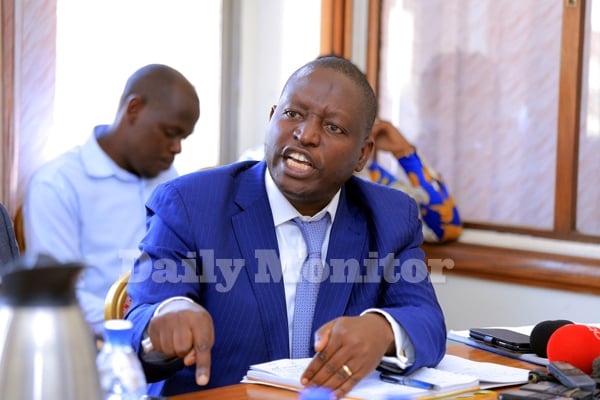RDCs are link between locals and central government

Steven Masiga
All resident district commissioners (RDCs) are recruited by the President and just like megaphones, when they shout, both the central and local governments will hear. They can mobilise peasants to partake in agriculture and other activities.
Indeed many RDCS colloquially refer to themselves as presidents of district and carry themselves in the same way. To actualise this fact, many can be seen wearing all sorts of military attire such as army jackets, and as an extra show of authority, they top it up with military boots. Some even carry around guns.
RDCs have been accused generically by their supervisors of deserting their work stations and occasionally assigning strange individuals, who are not even part of the core staff, to do their work.
There are a number of administrative functions cast unto RDCs, by the Constitution and the Local Government Act, ranging from monitoring government programmes and executing advisory roles to the district political leadership to standing in for the head-of-state at various functions in their localities, including sensitisation of locals on a number of government programmes.
RDCs are also important in drawing the attention of the Inspectorate of Government and other ministries on issues of concern in the district.
Broadly put, they have many tasks as chairpersons of the security committees of their districts, and more recently as Emyooga and Covid-19 taskforce chairpersons.
RDCs have mixed reactions when asked how they relate with the local leadership. Many accuse the district leadership of being selfish. But the district leaders similarly have no kind words for RDCs, whom they accuse of being corrupt.
Excellent performers have attracted the eye of the appointing authority, and they have been elevated to better positions. This indicates that being an RDC is not an end in itself. It may be the beginning of better things in life.
We cannot move away from the fact that a number of RDCs lack managerial and leadership skills, including basic legal skills, thus many should strive to achieve some legal skills.
Some of them show a lot of affinity to land grabbers, something that many residents I have talked to agree with. Because of their corrupt nature, they end up corrupting the whole system they head.
Whereas many RDCs execute their tasks well, many get bad press, the reason it is important to cross check any briefing from districts as they may have gaps in their authenticity.
District councils are also another big obstacle in the implementation of government programmes. Whereas the Public Procurement and Disposal of Public Assets (PPDA) Act and the Leadership Code Act discourage staff and politicians in the district from taking on contracts as contractors, many local government councillors and district chairpersons end up violating this provision because of poor pay, among other factors. Many of them end up taking on contracts as suppliers of, for example, to the Operation Wealth Creation project.
Equally, some law enforcers such as the police cast lukewarm attitude to instructions from RDCs.
Monitoring is key, thus to help the authority that deployed them, they ought to speak the ‘language’ of the wanainchi to enable them understand local problems connected to public service delivery.
Steven Masiga is a researcher from Mbale




